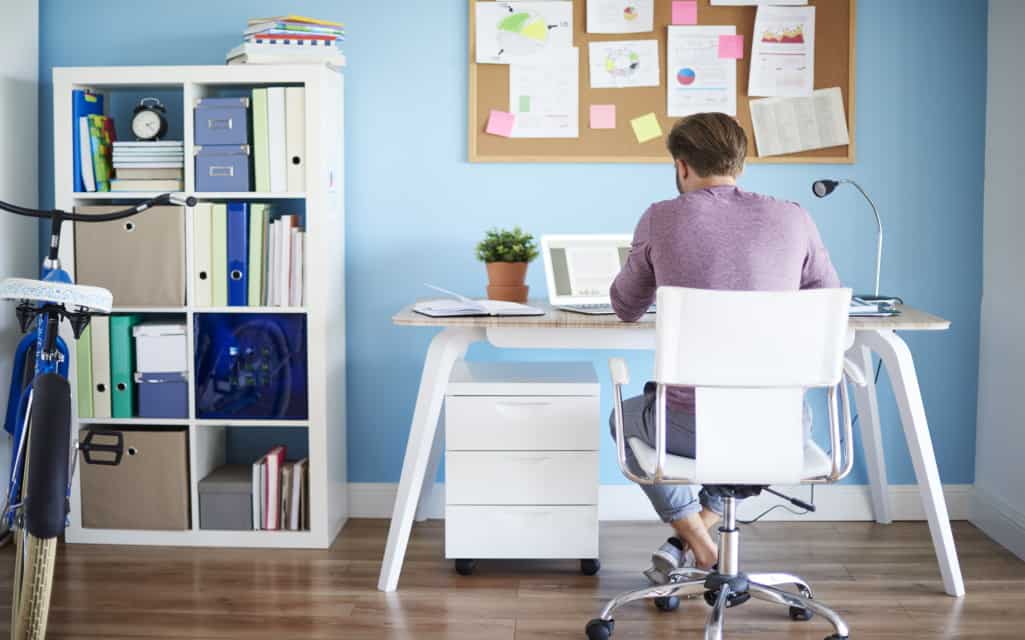Ever since the COVID-19 pandemic hit, the majority of the people have been forced to work from home. But more time at home does not necessarily mean less carbon footprint. You might be producing more, now that you’re not bound by office rules.
If you want to lessen your work-from-home carbon footprint, here are 3 simple ways you can create a sustainable home office during the pandemic.
1. Reduce Energy Consumption
It’s easy to assume that there is less energy consumed today, since almost everyone works from home. While office spaces are definitely consuming less electricity, the opposite is true for residential areas. In fact, reports show that residential energy use has increased since the pandemic hit.
But it’s not just because people are spending more time at home. They are either mindless or unaware about their energy consumption. If you are one of these people then, it’s time to do something about it for the environment.
Unplug devices that are not in use
Leaving devices plugged in especially when not in use consumes more electricity than you know. Sure, it’s just one laptop charger. But we all know how small habits always evolve into something bigger.
Pretty soon, you will be leaving the rest of your devices plugged in and wonder what has caused your electricity bill to soar.
So, stop these energy vampires by simply pulling the plug when you are not using them. You can also use a power strip for your devices, which you can unplug later on instead of unplugging all your devices one by one.
Use energy-saving features on your computer
The energy consumption of a computer depends on its type. Laptops consume 200W/hour on average. Desktop computers consume 600 kWh on average and emit 175 kg of carbon dioxide emission yearly. But you can reduce their electric energy consumption by doing the following:
● Reduce screen brightness
● Close unused apps
● Disable screen saver
● Turn off bluetooth when not in use
● Turn off wifi when not in use
● Put on sleep mode during short breaks
● Use earphones when listening to music
2. Go Paperless
An office worker uses about 10,000 sheets of paper yearly. That’s equivalent to one Douglas fir tree that stands 100 feet tall. Add up the number of office workers in every company, and you’d be overwhelmed by the average amount of paper consumed yearly.
Fortunately, today’s work-from-home setup has finally forced many companies to rely on digital documents. Although there’s no guarantee that everyone has completely stopped using paper, you can still do your part by going paperless.
Digital Notes
Ditch the pen and paper by turning to digital note-taking apps. Aside from reducing paper waste, it helps you be more organized. And you can easily retrieve your notes whenever you need them.
Digital Calendar
Forget about keeping a physical calendar by your desk. Opt for a digital calendar instead. Not only does it organize your schedule, but it also comes with reminder features so that you don’t miss out on important activities.
Digital Journal
If journaling helps boost your productivity, then you will love digital journals even more. They are customizable and easy to use. They also allow you to be more creative, organized, and efficient.
Digital Documents
For documents that you need to keep, skip printing them. Store them in the cloud instead. Not only can you retrieve them quickly when needed, but you can access them anytime and anywhere.
Going paperless does not just help the environment. It helps you spend less on paperclips, pens, printer inks, and more.
3. Opt For Sustainable Products
If you’ve never worked from home before the pandemic hit, then your house is probably not as work-friendly or sustainable as you’d like it to be. Fortunately, there is a wide range for zero waste products that brands such as Onyx and Green, A Good Company, and LastObject, to name a few, offer, and which you can consider to improve your home office.
Lights
If you can, set up your workspace somewhere with good natural lighting. Otherwise, go for LED energy-saving light bulbs. These should last you for years without consuming as much electricity as the average light bulb.
Furniture
The table and chair you have for work are important. They must be comfortable to use, as they affect your work performance. If you don’t have furniture pieces yet, opt for durable ones that should last for years to come.
You can also take it a step further by buying second-hand pieces to help reduce landfill waste.
Cleaning Products
A clean workspace helps you be more productive. But choosing the wrong cleaning products will put your health and the environment in danger. So, use cleaning products that are made of eco-friendly ingredients, and invest in cleaning tools that are durable and sustainable.
Now that you have these simple tips, you will create a sustainable home office during the pandemic in no time.



